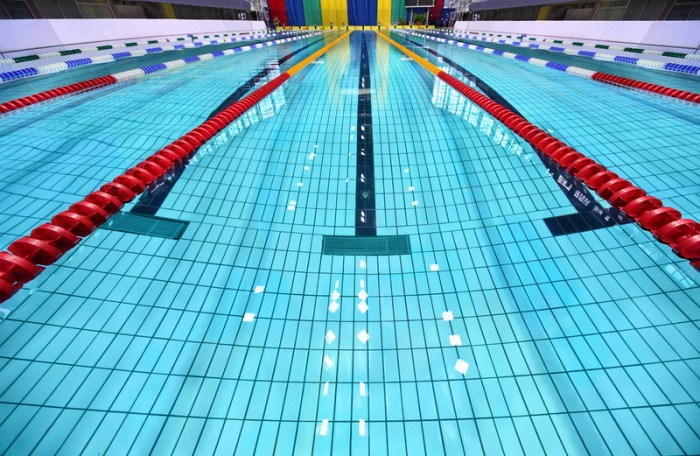Quite a few years ago I started swimming more seriously. I would go to the swimming pool two or three times a week and happily spend half an hour swimming up and down. Then, what seemed like all of a sudden, I started getting cold like symptoms the day after. I’ve always suffered from allergic rhinitis so it took me a while to pin down whether the cause was this, a head cold or something else completely.

After swimming in my local pool I would get symptoms such as feeling headachey, itchy, runny nose and sneezing – all the symptoms I get from my allergic rhinitis. I also found my skin was becoming increasingly irritated and dry. So, it seemed pretty obvious I was allergic to chlorine or some other swimming pool chemical.
Now, whilst I was convinced this was an allergic reaction popping an antihistamine seemed to make no difference. This seemed odd as I usually found a quick blast of Zyrtec or Claritin would at least take the edge of my sniffles and stop my nose dripping.
Not wanting to give up swimming just as I was beginning to improve I hit Google, searching for “swimming pool allergy” and “allergic to chlorine” and this is what I found…
Chlorine allergy is not an allergy!
OK, I’ll explain; despite the very similar symptoms to an allergy the cause is different. The reaction to the chlorine in the pool water is actually due to irritation of the skin and lining of the nose. Chlorine is pretty nasty stuff – it is the same chemical that occurs in bleach. Whilst it is only used in tiny amounts in swimming pools (around 1 part per million) some people, like myself, become hypersensitive to it. If this is the case then even these tiny amounts can result in chemical burn or in this context irritant dermatitis.
So chlorine is not triggering an allergic reaction, it is actually just irritating the lining of your nose and / or your skin. The correct term is chlorine sensitivity 1.
Whilst it may be the chlorine actually in the pool water that is affecting you it is more likely to be chemicals known as chloramines 2. These form when the chlorine in the water reacts with the body waste that humans bring to the pool (e.g. sweat, urine). Once present these chemicals readily form gases which circulate in the air above the swimming pool. It is therefore important that the pool is well maintained and there is good airflow – sometimes an issue in older pools.
Living with chlorine sensitivity
A nice idea would be to not have chlorine in swimming pools at all. Unfortunately it is there for a reason and is necessary to kill potentially harmful bacteria and other organisms in the pool water. There are alternatives such as pool ionizers and ozonators, but these are comparatively expensive and some chlorine is still required.
One obvious way of reducing the symptoms of chlorine sensitivity is to reduce your exposure to chlorine. You could give up swimming but the good news is that probably won’t be necessary.
To a large extent the exposure to chlorine isn’t just the time you spend in the pool; it is the cumulative effect of all that chlorine lingering on your skin and in your sinuses. Therefore, the simplest way to reduce this is by washing off as much after swimming. There are sprays designed for this on sale that contain ascorbic acid (vitamin C) 3. This apparently neutralizes the chlorine.
For preventing the runny nose and sneezing etc I use a nose clip – it takes a bit of getting used to initially, but now I barely notice it’s there. Another thing I tried was nasal irrigation as some people claim this is effective. I never tried this on its own without a nose clip, but in combination this seemed quite effective.
So, I’m not allergic to chlorine?
Well, probably not, although it gets a little complicated. There are several studies looking at the relationship between existing allergies and chlorine. Some studies have found that chlorine exposure can exacerbate existing allergic conditions [4. Chlorine inhalation produces nasal congestion in allergic rhinitics without mast cell degranulation – http://erj.ersjournals.com/content/21/4/652]. Other studies have linked exposure to chlorinated swimming pools to an increased likelihood to develop asthma [5. Impact of Chlorinated Swimming Pool Attendance on the Respiratory Health of Adolescents – http://pediatrics.aappublications.org/cgi/content/abstract/peds.2009-0032v1] although further research is needed to confirm this link.
To finish on a bright note, it is possible to overcome your allergy to swimming pool water. In fact two of the greatest swimmers of all time did not let it stand in the way of their outstanding careers. Australian swimmer, Ian Thorpe and U.S. swimmer, Amy Van Dyken both suffered from chlorine sensitivity, and both went on to win multiple Olympic titles.